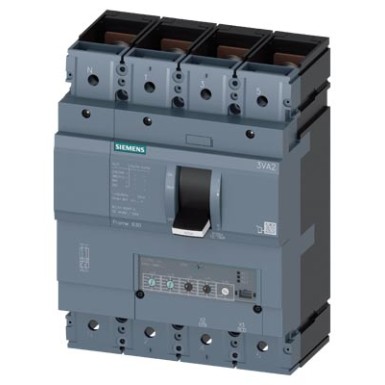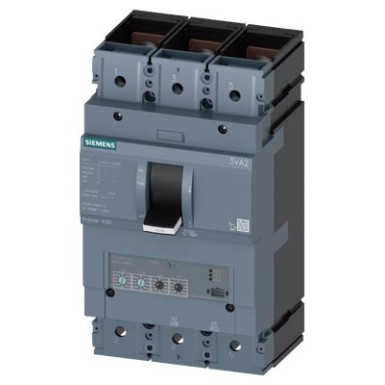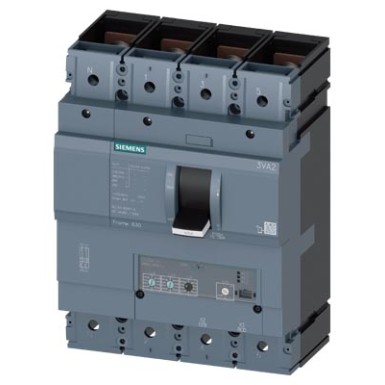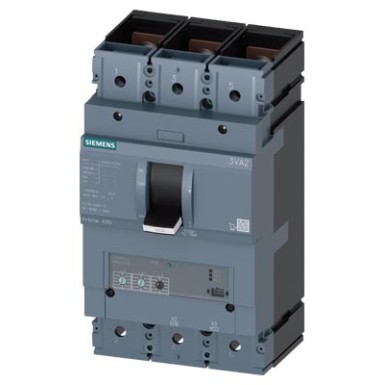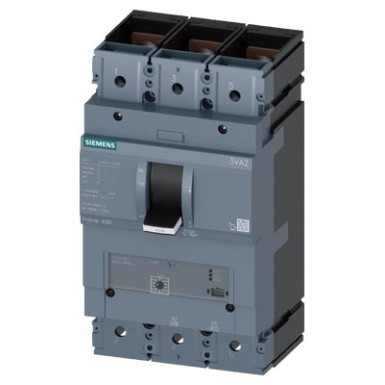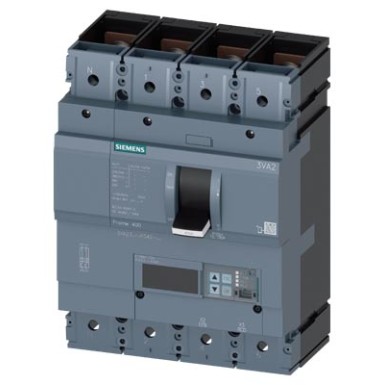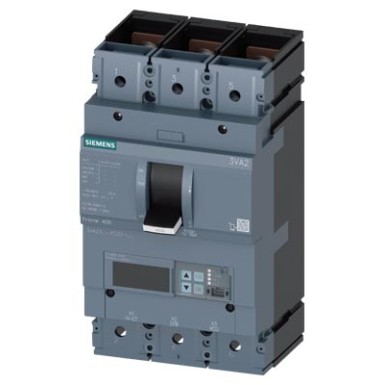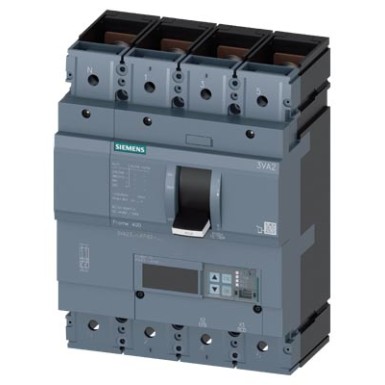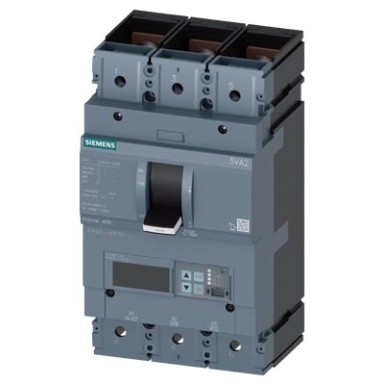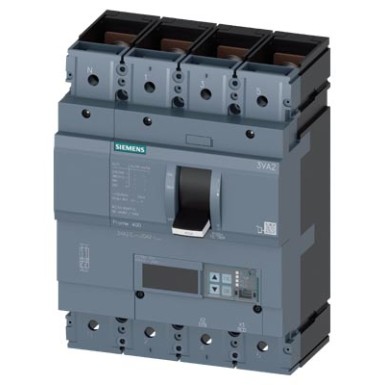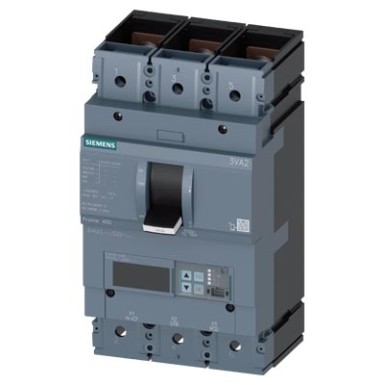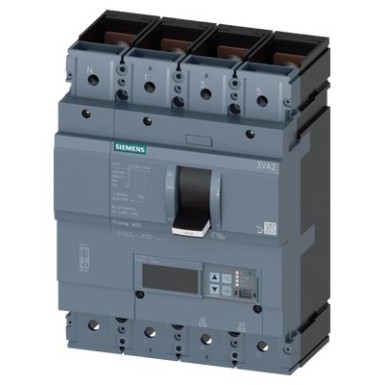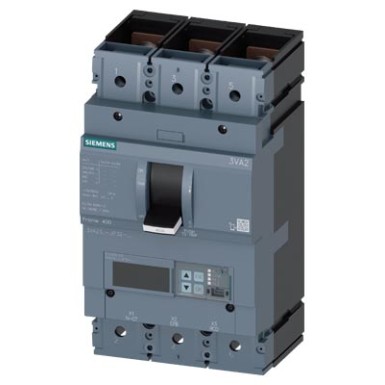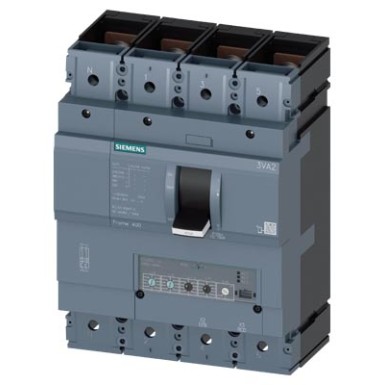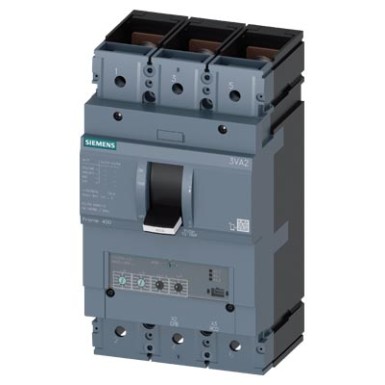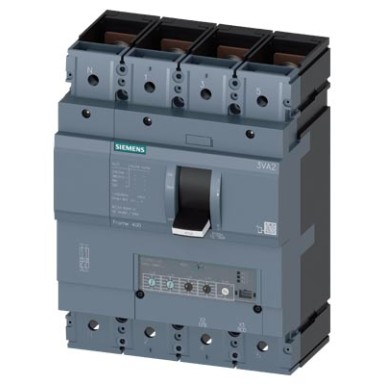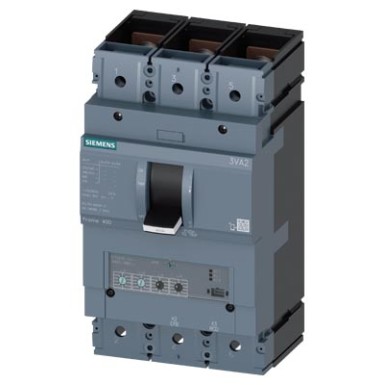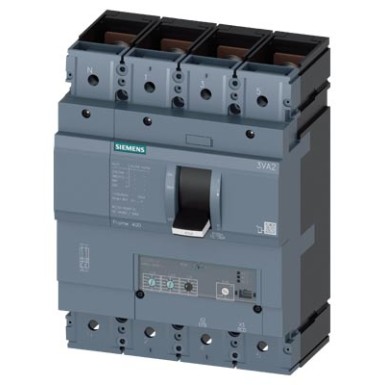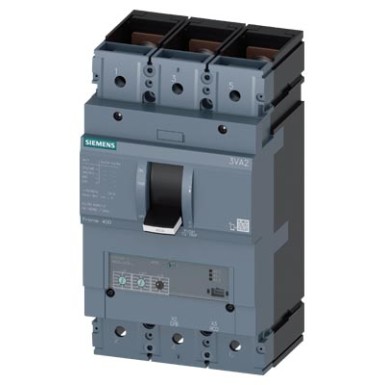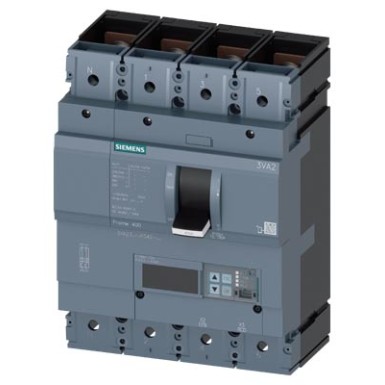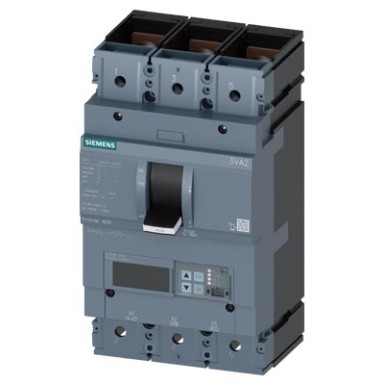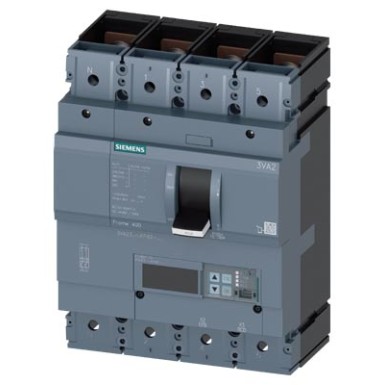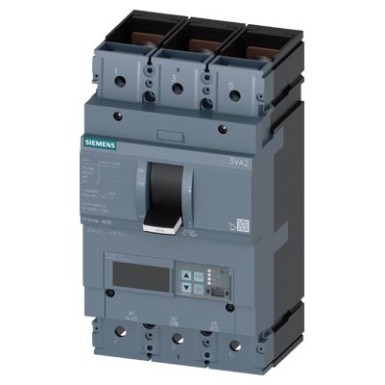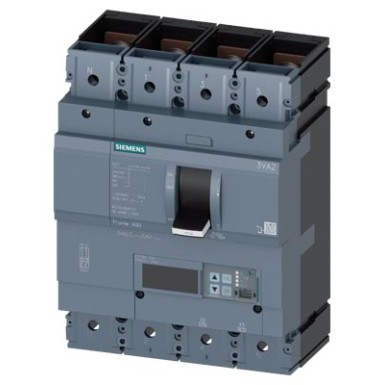Moulded Case Circuit Breakers (MCCB)
- Popular first
- Lowest Price
- Highest price
- Name (A - Z)
- Name (Z - A)
- Date (lowest)
- Date (highest)
Assortment of Moulded Case Circuit Breakers (MCCB) at BaltElec
At BaltElec, our extensive assortment of Moulded Case Circuit Breakers (MCCBs) represents a critical component for ensuring reliable and safe electrical systems. MCCBs are designed to protect electrical circuits from overloads and short circuits, offering both protection and switching capabilities.
Our inventory includes MCCBs suitable for various applications, including industrial, commercial, and residential environments. Key features of our assortment include:
- Current Ratings: Our MCCBs come in a range of current ratings to accommodate different power requirements, from low-current devices to those capable of handling high-load scenarios.
- Breaking Capacities: We offer MCCBs with various breaking capacities, ensuring that each device can safely interrupt fault currents without compromising the integrity of the electrical system.
- Poles: Available in single, double, and triple-pole configurations, catering to diverse circuit needs.
- Frame Sizes: Our products come in different frame sizes, allowing for compatibility with various installation requirements and space constraints.
- Additional Features: Some models include features like thermal-magnetic trip units, adjustable trip settings, and remote operation capabilities.
Our MCCB range is sourced from top European manufacturers, ensuring high quality and reliability.
Types of Products in the Category Moulded Case Circuit Breakers (MCCB)
Moulded Case Circuit Breakers (MCCBs) come in several types, each designed to meet specific protection needs:
- Thermal Magnetic MCCBs: These combine thermal and magnetic protection. The thermal part protects against prolonged overloads, while the magnetic component responds to short circuits. This type is widely used due to its balance of cost and functionality.
- Electronic MCCBs: Equipped with electronic trip units, these breakers offer precise protection settings and advanced features, such as adjustable trip characteristics and communication capabilities for integration into monitoring systems.
- Hydraulic Magnetic MCCBs: These utilize hydraulic mechanisms in conjunction with magnetic tripping, providing robust protection for high-current applications and harsh environments.
- Dual Function MCCBs: Some MCCBs offer both protection and switching capabilities, allowing them to act as both protective devices and disconnect switches. This versatility is useful in applications where space and functionality need to be optimized.
- Smart MCCBs: Integrating communication protocols such as Modbus or Profibus, these breakers can be monitored and controlled remotely, providing real-time data and enhancing system management.
Advantages of Buying Moulded Case Circuit Breakers (MCCB) at BaltElec
Choosing MCCBs from BaltElec offers several benefits:
- High-Quality Standards: Our products are sourced from leading European manufacturers, ensuring top-notch quality, reliability, and compliance with international standards.
- Comprehensive Range: We provide a wide selection of MCCBs to meet various application needs, from simple residential circuits to complex industrial systems.
- Competitive Pricing: BaltElec offers competitive pricing across our MCCB range, making high-quality electrical protection accessible.
- Expert Guidance: Our team of experts is available to assist with product selection, technical specifications, and installation advice, ensuring you get the right MCCB for your needs.
- Fast Delivery: We ensure prompt delivery of products, minimizing downtime and keeping your projects on schedule.
- Customer Support: Our dedicated customer support team is available to handle inquiries, provide technical support, and address any issues that may arise.
Moulded Case Circuit Breakers (MCCB) from Leading Manufacturers
BaltElec features MCCBs from a selection of leading European manufacturers, each offering distinct advantages:
- Schneider Electric: Known for their robust and reliable MCCBs, Schneider's products feature advanced protection technology and modular designs. The Schneider Acti9 and Masterpact series are popular for their efficiency and flexibility.
- ABB: ABB's MCCBs, such as the Tmax XT series, are renowned for their innovative design and high performance. They offer advanced protection features and integration capabilities.
- APC: APC (American Power Conversion) provides MCCBs designed for critical power applications. Their products ensure reliable operation under demanding conditions.
- Finder: Finder MCCBs are recognized for their compact design and high performance. They offer reliable protection in a variety of industrial and commercial settings.
- Hager: Hager’s MCCBs, including the MBS series, offer high breaking capacity and precise protection settings, suitable for a wide range of applications.
- Legrand: Legrand's MCCBs, such as the DX3 series, are known for their durability and ease of installation, making them a preferred choice for both new installations and upgrades.
- OEZ: OEZ offers MCCBs with a focus on cost-effectiveness and reliability. Their products are designed to meet diverse protection needs while maintaining affordability.
- Phoenix Contact: Known for their innovative technology, Phoenix Contact's MCCBs offer advanced protection features and seamless integration into automated systems.
- Siemens: Siemens provides MCCBs like the 3VA series, which combine robust protection with advanced digital features, making them suitable for modern electrical systems.
- Wago: Wago's MCCBs are designed for versatility and ease of use, offering reliable protection and integration capabilities for various applications.
Prices for High-Quality Moulded Case Circuit Breakers (MCCB)
Pricing for MCCBs at BaltElec varies depending on several factors:
- Current Rating: MCCBs with higher current ratings generally cost more. Prices can range from €50 for lower-rated models to over €500 for high-current devices.
- Breaking Capacity: Higher breaking capacities often command a premium. Basic models start around €70, while those with advanced capacities can exceed €600.
- Type and Features: Standard thermal-magnetic MCCBs are usually more affordable, starting from €60, while electronic and smart MCCBs can range from €150 to €800, depending on the features and capabilities.
- Manufacturer: Products from premium brands like Schneider and Siemens tend to be at the higher end of the pricing spectrum, while more economical options from brands like OEZ offer budget-friendly choices.
-
What is an MCCB and why do I need one?
An MCCB is a type of circuit breaker that protects electrical circuits from overloads and short circuits. It is essential for safeguarding electrical systems and preventing damage from excessive currents.
-
How do I choose the right MCCB for my application?
Consider factors like current rating, breaking capacity, type (thermal-magnetic, electronic, etc.), and additional features required for your specific application.
-
What is the difference between thermal-magnetic and electronic MCCBs?
Thermal-magnetic MCCBs provide basic protection using a combination of thermal and magnetic mechanisms. Electronic MCCBs offer advanced features and precise settings, suitable for complex or critical applications.
-
Are MCCBs compatible with all types of electrical systems?
Most MCCBs are designed to be versatile and compatible with a wide range of systems. However, it's essential to ensure that the MCCB matches the specifications and requirements of your particular installation.
-
How often should MCCBs be tested or replaced?
MCCBs should be tested periodically to ensure they are functioning correctly. They should be replaced if they show signs of wear, damage, or if they fail to operate as expected during testing.
-
Can MCCBs be used for both residential and industrial applications?
Yes, MCCBs are suitable for both residential and industrial applications. However, the specific type and rating of the MCCB should match the requirements of the application.
-
What should I do if my MCCB keeps tripping?
Frequent tripping could indicate an overload, short circuit, or a faulty MCCB. Check the connected load and wiring, and consider consulting a professional if the issue persists.
-
How do I install an MCCB?
MCCB installation should follow the manufacturer's instructions and local electrical codes. It typically involves mounting the MCCB, connecting the input and output wires, and adjusting the trip settings as needed.
